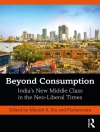‚A brilliant treasury of wisdom and insight drawn from leading sociologists throughout the world…It is a striking achievement, of which the International Sociological Association can be very proud, to have brought so many independent-minded scholars into so productive a dialogue.‘
– Dennis Smith, Professor of Sociology, Loughborough University
Twenty-nine chapters from prominent international contributors discuss, challenge and re-conceptualise the global discipline of sociology, evaluating the diversities within and between sociological traditions of many regions and nation-states. They assess all aspects of the discipline: ideas and theories; scholars and scholarship; practices and traditions; and ruptures and continuities through an international perspective.
The Handbook argues that diversities in sociological traditions can be studied at three levels. First, they need to be studied from multiple spatial locations: within localities, within nation-states, within regions and the globe. Second, they need to be discussed in terms of their sociological moorings in distinct philosophies, epistemologies and theoretical frames, cultures of science and languages of reflection. Third, the intellectual moorings of sociological practices are extensive. The papers discuss the diverse and comparative sites of knowledge production and its transmission.
Inhaltsverzeichnis
Introduction: Diversities of Sociological Traditions – Sujata Patel
PART I: THE DEBATE – ONE SOCIOLOGY OR MANY SOCIOLOGIES
Chapter 1: One Sociology or Many? – Piotr Sztompka
Chapter 2: Religion and Reform – Farid Syed Alatas
Chapter 3: Learning From Each Other – Sociology on a World Scale – Raewyn Connell
Chapter 4: Forging Global Sociology from Below – Michael Burawoy
PART II: BEYOND THE CLASSICAL THEORISTS: EUROPEAN AND AMERICAN SOCIOLOGY TODAY
Chapter 5: Sociology in the Spiral of Holism and Individualism – Louis Chauval
Chapter 6: Various Traditions and Approaches of German Sociology – Karl-Siebert Rehberg
Chapter 7: Diversity, Dominance and Plurality in British Sociology – John Scott
Chapter 8: Sociology, Science and Profession – Analia Torres
Chapter 9: Visions and Divisions of American Sociology – Craig Calhoun, Troy Duster & Jonathan Van Antwerpen
PART III: LOCAL TRADITIONS AND UNIVERSAL SOCIOLOGIES
Chapter 10: Post-Communist Democratization and the Practice of Sociology in Central and Eastern Europe – Janusz Mucha & Mike F. Keen
Chapter 11: What is Russian Sociological Tradition? – Elena Zdravomyslova
Chapter 12: Traditions and ruptures in Hungarian sociology – Dénes Némedi
Chapter 13: Rediscovering Sociology in Bulgaria – Pepka Boyadjieva
PART IV: AUTHORITARIANISM AND CHALLENGES TO SOCIOLOGY IN LATIN AMERICA
Chapter 14: Five Dilemmas of Latin America sociology – Roberto Briceño-León
Chapter 15: The Creation of New Social Theory in Latin America – Fernanda Beigel
Chapter 16: Trajectories of Brazilian Sociology – Maria Stella, Grossi Porto & Tom Dwyer
Chapter 17: Dilemmas, Challenges and Uncertain Boundaries of Argentinean Sociology – Diego Pereyra
PART V: THE COLONIAL HERITAGE AND ITS SOGIOLOGICAL TRADITIONS
Chapter 18: Sociology in West Africa – Ebrima Sall Codesria & Jean-Bernard Ouedraogo
Chapter 19: The Forging of a National Sociological Tradition in South Africa – Tina Uys
Chapter 20: Palestinian Sociological Production – Sari Hanafi
Chapter 21: Israeli Sociology in Universities and Beyond – Victor Azarya
Chapter 22: Sociology in Iran: Between Politics, Religion and Western Influence – Ali Akbar Mahdi
Chapter 23: At Crosssroads – Sociology in India – Sujata Patel
Chapter 24: Ethnicity/race within Sociology in the Commonwealth Caribbean – Ann Denis
PART VI: LOCAL OR UNIVERSAL – IDENTITY AND DIFFERENCE IN THE SOCIOLOGY OF THE FAR EAST
Chapter 25: A New Agenda for the Sociology of Transformation in China – Shen Yuan & Guo Yuhua (translated by Ching Kwan Lee)
Chapter 25: Evaluating Sociologists in Taiwan – Ming-Chang Tsai
Chapter 26: Sociology in Post World War II Japan – Koto Yousuke
Chapter 27: Institutionalizing Sociological Practice in the Philippines – Emma Porio
Chapter 28: Antipodean Traditions of Sociology – Charles Crothers
Über den Autor
Sujata Patel is a sociologist at the University of Hyderabad. An historical sensibility and a combination of four perspectives – Marxism, feminism, spatial studies and post structuralism – post colonialism influences her work which covers diverse areas such as modernity and social theory, history of sociology/social sciences, city formation, social movements, gender construction, reservation, quota politics and caste and class formations in India. She is also an active interlocutor of teaching and learning practices, and has written on the challenges that organise its reconstitution within classrooms, university structures. She is the author of more than 60 papers and is the series editor of Sage Studies in International Sociology (including Current Sociology Monographs (2010–2014), Oxford India Studies in Contemporary Society (Oxford, India) and Cities and the Urban Imperative (Routledge, India). She is also the author of The Making of Industrial Relations (Oxford University Press, 1997), editor of The ISA Handbook of Diverse Sociological Traditions, Sage London (2010) and Doing Sociology in India, Genealogies, Locations and Practices (Oxford, 2011) as also a co-editor of five books, Bombay: Metaphor of Modern India (Oxford University Press, 1995); Bombay: Mosaic of Modern Culture (Oxford University Press, 1995); Bombay and Mumbai: The City in Transition (Oxford University Press, 2003); Thinking Social Science in India (Sage, 2002); and Urban Studies (Oxford University Press, 2006). She has been associated in various capacities with the International Sociological Association and has been its first Vice President for National Associations (2002–2006).












